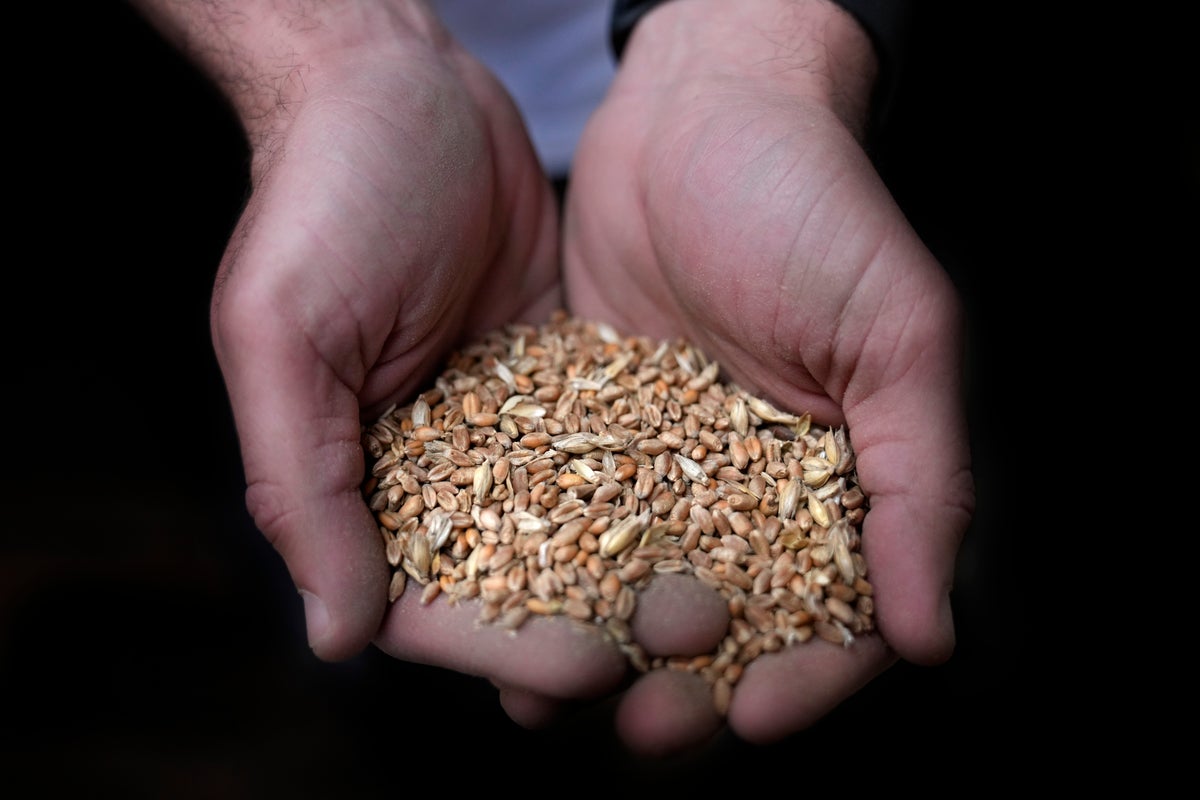
Lebanese lawmakers on Tuesday voted to use a $150 million World Bank loan to pay for wheat imports into the cash-strapped country.
Already in the throes of a crippling economic crisis, Lebanon is also struggling to cope with a food security crisis that has left half its roughly 6 million people without adequate food.
The war in Ukraine and global inflation have worsened the situation faced by the tiny Mediterranean nation. Three-quarters of Lebanon's population live in poverty and are struggling to cope with rampant power cuts, medicine shortages, and soaring food and fuel prices. The Lebanese pound has lost 90 percent of its value against the U.S. dollar.
According to the United Nations World Food Program, Lebanon has one of the highest food inflation rates worldwide.
Caretaker Economy Minister Amin Salam told The Associated Press in an interview in April that the World Bank loan would stabilize bread prices for at least six months, effectively buying the Lebanese authorities more time to reform its broken and ineffective institutions.
After the parliamentary vote, Salam said in a news conference that the money could secure wheat for a longer than six months, provided prices continue to decline.
Panics and queues at the bakeries are commonplace. Scuffles break out between anxious customers waiting for limited available bread bundles. Bakery owners have warned that wheat supply is limited and operation costs have skyrocketed.
Though Lebanon’s foreign reserves continue to drain at a striking rate, the country continues to partially subsidize wheat imports and modify bread prices in line with fuel prices, currency devaluation, and global wheat prices. Critics say the blanket subsidy program is ineffective and expensive, and the government has struggled to manage a targeted cash card program for the country’s most vulnerable.
Caretaker Prime Minister Najib Mikati, who was present during Parliament's vote, said that most locally produced bread “goes to non-Lebanese and everyone knows that.” Salam said government and security officials formed a committee to monitor wheat imports and distribution.
Lebanon’s economic meltdown is due to decades of corruption and financial mismanagement.
For over two years, Lebanon has been negotiating with the International Monetary Fund to unlock billions of dollars in aid and make its economy viable again. But the country has struggled to reform its banking sector and bloated public sector.
Lebanon has been without a fully-functioning government for almost three months, with reappointed Prime Minister-elect Mikati steering a caretaker government.







